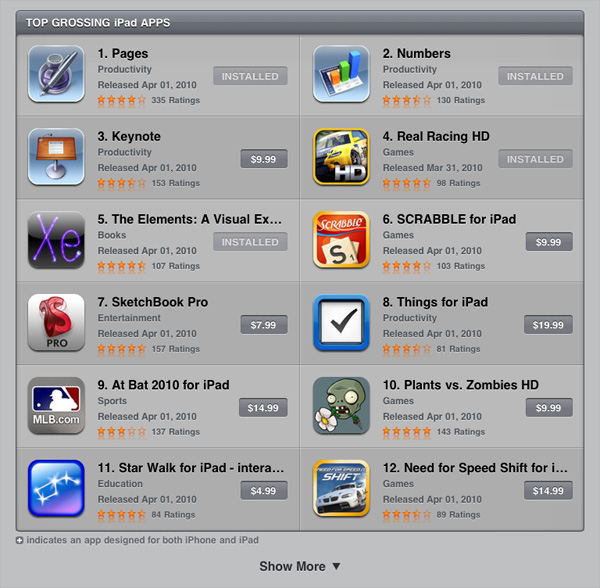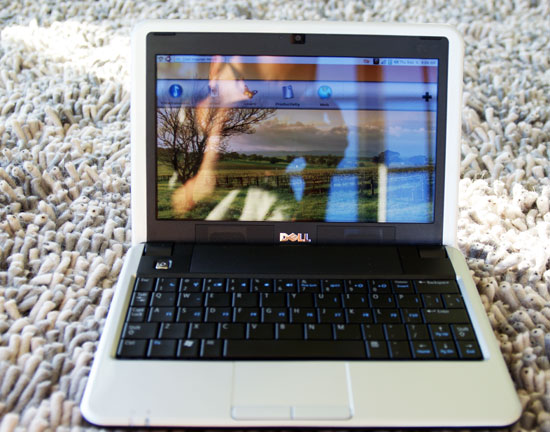Anand's Thoughts on Google's Chrome OS
by Anand Lal Shimpi on December 8, 2010 6:23 PM ESTFifteen years ago if you wanted to write an application that would run on over 90% of the world’s personal computers, you only needed to target one OS. Today, to do the same, you’d need to develop for ten - Windows, Linux, OS X, Android, iOS, webOS, BlackBerry OS, Symbian, MeeGo and of course, the web.
You don’t get order without first having chaos and you don’t end up with consolidation without first going through fragmentation. The PC era was dominated by Microsoft and Intel. The transition to ubiquitous computing allowed for many more competitors, which results in a great deal of fragmentation up front.
The goal however, is the same. Every player in this space wants to be what Microsoft was during the PC era. Even the actions are the same. There’s no interoperability between platforms, there are closed door negotiations and exclusivity agreements resulting in a number of alliances that are not easily broken.

Microsoft’s leverage is existing revenue stream. Its partners want to continue to receive favorable terms for existing PC shipments and thus tend to avoid embracing Google or other non-Microsoft OSes too eagerly. Google’s leverage is the promise of a very un-Microsoft future. Lower costs, friendlier terms and the ability for its partners to get in on the ground floor of something big. Neither approach is guaranteed and aligning yourself with one company is risky. The rest of the players are vertically integrated hardware vendors that are trying to mimic the success that Apple has had with iOS and OS X (e.g. HP/Palm, RIM). MeeGo is the only exception there as Intel/Nokia want it to be treated as an alternative to Android.
Then there’s the web. The most universal of all of the platforms, the web isn’t controlled or dominated by any one company. Great open source browser projects have ensured that nearly all of the platforms I listed above have great ways to access the web, and most can run any app you’ve got on the web.
PCs are the more traditional portal to the web. Sure they can do much more than run a web browser, but as web applications and services grow more powerful, the list of things you have to do outside of a browser window shrinks. This is especially true for mainstream consumers who check their email in a web browser, get their news in a web browser, chat in a web browser, watch videos in a web browser and listen to music, all within a browser window. In fact, the netbook was born out of the idea that you don’t need a huge transistor budget to provide the silicon that can drive a browser and the apps you run on top of it.
Fifteen years ago most households had one computer, if that. These days you might have five within a single room (desktop, notebook, smartphone, media streaming box and tablet). Households didn’t become infinitely more wealthy over the past two decades - the cost of these secondary and tertiary computing devices just dropped. Moore’s Law enables two things: more processing power at the same cost, or equivalent processing power at a lower cost. Iterate the Law a few times and you’ll eventually be able to create silicon that’s fast enough for specific tasks at a very low cost. Shrinking transistor feature sizes, costs and high levels of silicon integration gave us the fast enough ARM based SoCs that enable today’s awesome smartphones, as well as the Atom processor that created the netbook industry.

Interestingly enough, the problems that impact the high end of the market also impact this fast enough segment of the market. At the high end we’ve got tons of compute, storage and IOPS thanks to multicore CPUs/GPUs, low memory costs and SSDs, but we don’t have a lot of software to really tax it all. Believe it or not, the same gap exists at the low end. The difference is that while Atom is more than fast enough to run a web browser, it’s typically burdened by a heavy weight OS that hampers the user experience.










104 Comments
View All Comments
zodiacfml - Thursday, December 9, 2010 - link
Firstly, Anand presented the article nicely with good points that have nothing I disagree. I am sure, the OS will see success similar to netbooks or the Chrome browser, not for everybody, but works very well for some.Anyways, as JamaCheerio above, this will save me from being free support for many people regarding their machines. I could install this thing to people who only use a computer for getting online and also think that they're almost 90% of them.
For personal use, I could use this in an old or low end notebook/netbook which can support digital cameras(for travel purpose) which could be already in the plans of Google as many people update their online presence with pictures.
R3MF - Thursday, December 9, 2010 - link
i don't like it, and the failure of atom is not a failure of desktop OS's in light-weight platforms, fusion will fix that deficiency.MagmaTism - Thursday, December 9, 2010 - link
Just install the latest Ubuntu and Chrome to get a feel for the performance.I'm using a first Gen ATOM on my netbook, and the experience in Chrome feels faster than my 2.4GHz Core2Duo laptop. DOM animations are buttery smooth as is scrolling. The entire experience is blazing fast and doesn't make me want in any one area. It even handles flash content very well with smooth operation on full screen animations. The canvas also performs quite well as tested against the popular chrome experiments site and heavy Javascript apps like Google Documents load quickly and interaction has been flawless.
Let me say this again: On my first generation ATOM netbook, the experience is flawless.
I expect that not only will CR48 have superior hardware, but the OS will be far more optimized than mine is now, in addition to SSD which will further reduce latency and improve perceived performance. Added on top of this, is an iteration of V8 which improves performance even further, and increased GPU acceleration of website content.
Also, thanks to recent optimizations by Adobe, flash videos consume next to no CPU for 1080p video using GPU hardware.
I fully expect chrome OS to put more powerful notebooks running windows to shame from a user-experience standpoint -- not raw computation, of course.
TonyY001 - Thursday, December 9, 2010 - link
If apps can only be downloaded from the Chrome OS store how will companies build internal apps that they want to run on Chrome OS?iwodo - Thursday, December 9, 2010 - link
$400 is too expensiveiwodo - Thursday, December 9, 2010 - link
Why does the stupid Filter continue to NOT ALLOW ME TO POST and say I post SPAMShadowmaster625 - Thursday, December 9, 2010 - link
"The selling point behind a netbook is that it’s small, cheap and fast enough for browsing the web. The problem is a netbook isn’t fast enough for running the OS that you need to run in order to get access to the web."The selling point behind a netbook is not "small, cheap and fast enough". If that was the selling point then they would have a low budget low capacity SSD installed. But they dont. They ALL have craptastic 250+GB 5400rpm hard drives. Why? What good does it do to have 238 more gigabytes than you need to surf the web on Windows 7? These guys could very easily stuff a windows 7 installation onto 12GB, including hibernation space. And you only need a few extra gigs for "surfing the web". So why are there no 30-40GB SSD options on netbooks? I know exactly why. Because people dont think. They hear that stupid Intel jingle on tv 200 times a year for 15 years, then they mindlessly buy it or market it even though it is just a scam. And everyone falls for it. Where is the critical analysis? Why can I not go anywhere and buy a cheap "netbook" for "surfing the web" that has a logical storage solution? (ie 30 gb SSD, which costs maybe $10 more than a 250GB notecrap 5400rpm hard drive.) Instead we are all stuck with something that crashes the moment you jostle it.
Shadowmaster625 - Thursday, December 9, 2010 - link
Correction. I forgot about the plethora of craptastic 160GB 5400rpm hard drives.strikeback03 - Thursday, December 9, 2010 - link
Do the Windows 7 Starter TOS say anything about shipping with SSDs? Obviously more than 1GB of RAM would help too, but they don't do that often.aapocketz - Thursday, December 9, 2010 - link
AGREEDThe original eeepc netbook ran linux on a small low capacity SSD. Then people demanded windows and big HDDs, and now thats all they sell.
However, I am glad Google is willing to push the original eeepc type concept, and with their software knowledge they may be able to pull it off better than ASUS did. The included cellular radio may help sell it too. Just don't count on it. Sometimes I think google has the throw a bunch of crap on the wall to see what sticks approach to innovation.